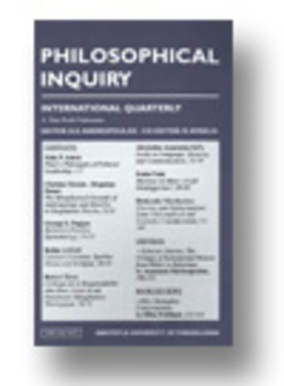Is Socrates' just city realizable?
Part of : Philosophical inquiry ; Vol.XXIX, No.3-4, 2007, pages 9-21
Issue:
Pages:
9-21
Author:
Abstract:
This paper deals with some problems emanating from Socrates’ assumptions in construing his ideal city. Firstly, he contends that the ideal city should be ruled by a philosopher-king. Yet, the philosopher’s unwillingness to tackle with politics seems to pose a difficulty on the way of satisfying this requirement. Secondly, Socrates holds that dialectic and rational criticism are effective devices to assure people's consent for attempting to establish the just city. This seems to be an over-simplistic assumption, however, as the variety of individuals’ interests may hinder arriving at an agreement upon such a common purpose. Finally, the paper addresses Socrates’ presupposition that the ideal city must be founded on strictly isolated classes according to the kind of the soul the members of these classes have, namely golden, silver, and iron-bronze. My argument is that this presumption is inconsistent with his claim that the ideal city is of a family-like oiganization.
Subject:
Subject (LC):
Notes:
Περιέχει σημειώσεις και βιβλιογραφία




